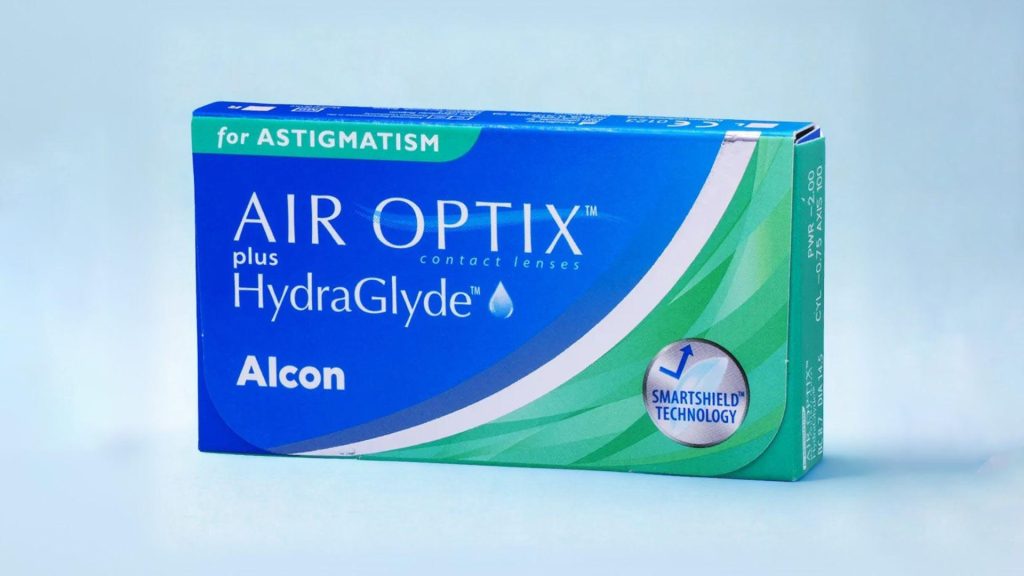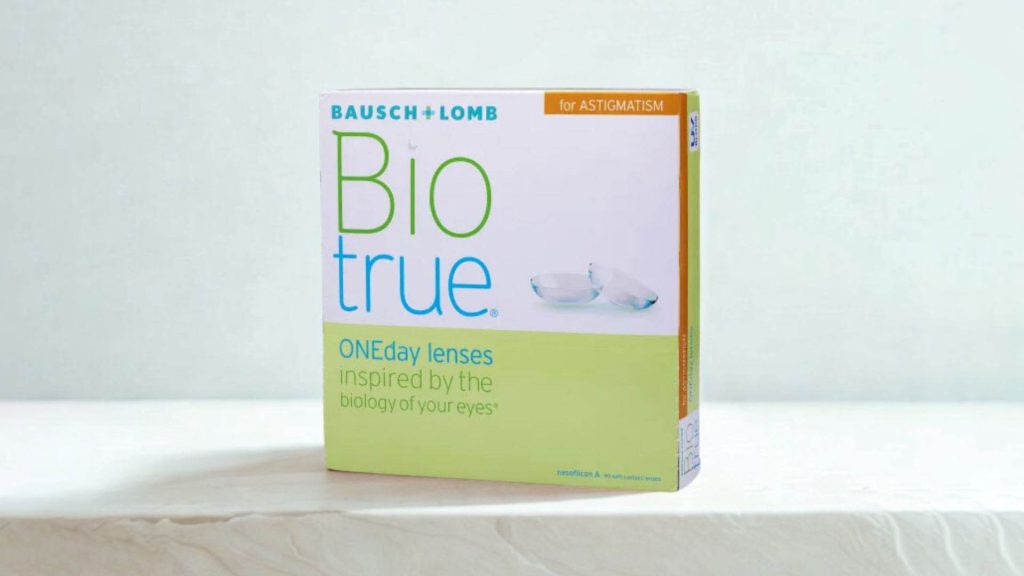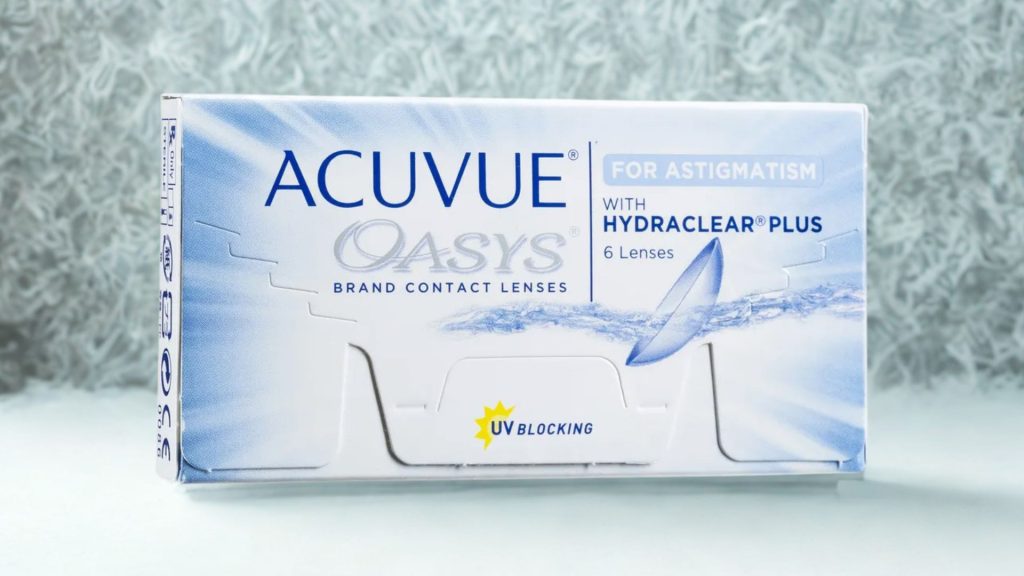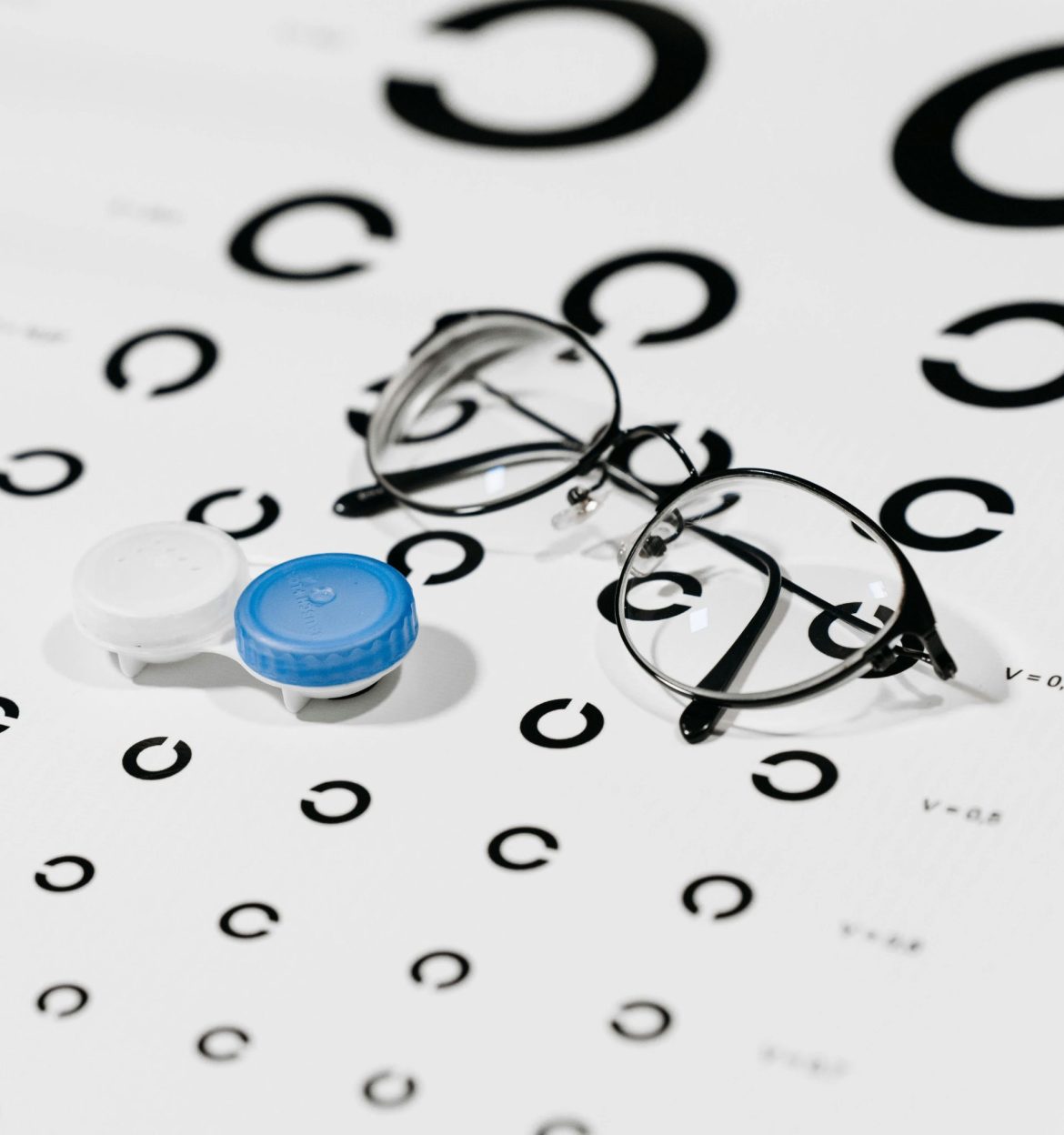![]()
Standard contacts can be problematic for people with astigmatism. If your vision is blurry and your lenses seem uncomfortable no matter how much you try to adjust them, you might need contact lenses for astigmatism.
An eye doctor can examine your eyes and prescribe the best eyewear for you. If contacts for astigmatism are the right choice, there are a few things to keep in mind when making the switch to these special lenses.
What Is Astigmatism?
Astigmatism occurs when your cornea—the lens of your eye—has an oval or elongated curve like a football instead of a rounded one like a basketball.
This condition prevents light from focusing on a single point on the retina. Instead, light enters your eyes at multiple points, which distorts your vision.
As a result, it could be harder to see objects from a distance. You may also experience frequent headaches and eye strain. At night, you might even see glares and halos around light sources.
Types of Contact Lenses for Astigmatism
Picture trying to fit a football perfectly into packaging made for a basketball. It would be tough, right? Similarly, standard contact lenses aren’t made to fit astigmatic eyes comfortably. They could even distort the images that you see.
Thankfully, there are contact lenses for astigmatism, and with a prescription from your eye doctor, you can take advantage of their benefits. Toric, rigid gas permeable, and hybrid lenses are best, so let’s talk about these options.
Toric Contact Lenses
Toric lenses are the most common soft lenses for astigmatism. You can get these with varying prescription strengths across the lens to correct irregular vision. These lenses are weighted so they stay in place.
Pros
- Easiest to start with
- Comfortable and easy to wear
- Widely accessible in daily, bi-weekly, and monthly options
- Budget-friendly in comparison to other contact lenses for astigmatism
Cons
- May take time to get used to
- More expensive than standard soft lenses
Bestselling Toric Lenses
Alcon’s AIR OPTIX plus HydraGlyde Astigmatism contact lenses are best best-selling monthly contacts for astigmatism. They feature superior water retention for all-day comfort and better vision.

Biotrue ONEday daily disposable contact lenses for astigmatism by Bausch + Lomb are designed to mimic the natural eyes of the wearer, from curvature to water content. Tests claim almost 16 hours of full water retention. These daily lenses for astigmatism are some of the most comfortable available. Plus, they’re surprisingly affordable!

Acuvue Oasys for Astigmatism are reliable biweekly toric lenses with superior moisture retention. Their Senofilcon material makes them one of the most comfortable multi-wear contact lens options.

Rigid Gas Permeable (RGP) Lenses
Compared to soft contacts, RGP lenses are better-fitting contact lenses for astigmatism. They tend to hold their shape better when placed over your corneas, which creates a smoother optical surface. The advantage here is the sharper vision from lenses built to last longer.
Pros
- Better, clearer vision
- More durable than soft lenses
- Typically last longer than soft lenses
Cons
- Less comfortable, especially for first-time wearers
- Requires an adjustment period
- Can fall out more quickly than soft lenses
Hybrid Contact Lenses
The hybrid contacts for astigmatism feature the best qualities of soft toric lenses and hard RGP lenses. These have rigid centers for clearer vision and soft outer rings for comfort.
Pros
- Sharp vision without discomfort
- More stable than toric lenses
- Less chance of lens rotation
Cons
- More expensive than soft toric or RGP lenses
- Harder to fit and replace
Scleral Lenses
Scleral lenses are designed to give optimal relief to those with severe astigmatism and dry eyes. These lenses are larger, gas-permeable lenses that rest on the white part (sclera) of the eye, rather than on the cornea. A fluid-filled layer is created over the cornea for comfortable vision correction.
Pros
- Provides excellent vision correction
- Stable fit with no rotation issues
- Ideal for severe astigmatism and irregular corneas
Cons
- Expensive and custom-made
- Needs extra care and cleaning
- May require a longer adjustment period
Choosing the Right Contact Lenses

The best contact lenses for astigmatism for you depend on your doctor’s recommendation. You always need a prescription to purchase these lenses, so the first step is to consult your doctor and schedule an eye exam.
When recommending new contacts, optometrists typically take your lifestyle, preferences, and budget into account.
- Soft toric lenses are often the most popular choice, so they are usually readily available and budget-friendly. Additionally, since they are soft lenses, they’re easy to wear and maintain.
- RGP and hybrid lenses feel harder against the eyes, so they take some time to get used to. Of course, once you’ve worn them for a while, you’ll love the sharper vision and better fit.
- If you have severely irregular corneas, scleral lenses may be the best option for you.
Caring for Your Contact Lenses
Contact lenses for astigmatism are specialized, so you can expect them to cost a little more than standard contacts. To make the most of them, you’ll need to be consistent in your cleaning and care routines.
- Clean daily: Use the recommended solution to remove debris and protein buildup.
- Store properly: Always use a clean, dry case filled with fresh solution.
- Avoid sleeping with your lenses: Remove them before bed. Sleeping with contacts in your eyes can cause visual strain, dry eyes, and damage to your lenses.
- Replace on schedule: Follow the replacement schedule for your specific lens type.
Common Challenges and Solutions
Blurry Vision Due to Lens Rotation
Soft toric lenses are made for comfort. Unfortunately, they sometimes rotate on the eye, giving you uneven and blurry vision correction.
You can try to correct this by replacing your lenses. Having a lens cleaning kit with you comes in handy.
However, if your lenses shift frequently, ask your doctor about brands with a more stable toric lens design. You might need to consider weighted toric lenses to improve lens positioning.
If the problem persists, consider RGP or hybrid lenses.
Dry Eyes and Discomfort
Astigmatism lenses can sometimes feel dry, especially when you need to wear your contacts for the whole day. Soft toric lenses may hold less moisture than standard lenses and become uncomfortable sooner.
Use rehydrating drops to add moisture to your eyes. Likewise, consider switching to silicone hydrogel lenses, which are designed for better moisture retention.
If dryness continues to be an issue, scleral lenses might be a good option. Consult your doctor first.
Difficult Adjustment Period
There is a longer adjustment period for RGP and hybrid lenses compared to soft lenses. However, you will benefit from stability and sharper vision. It’s the same scleral lenses—you have to get used to them before enjoying the perks.
Know what to expect. If the discomfort lasts longer than expected, consult your doctor.
Final Thoughts
If you have astigmatism, finding the right contact lenses takes a little effort, but the payoff is worth it!
Consult with your doctor for the best contact lenses for astigmatism. Know your options and consider your lifestyle and needs in choosing your lenses.
Once you find the perfect pair, be consistent in caring for them. With the right lenses, astigmatism won’t stand in the way of crisp, clear vision.


